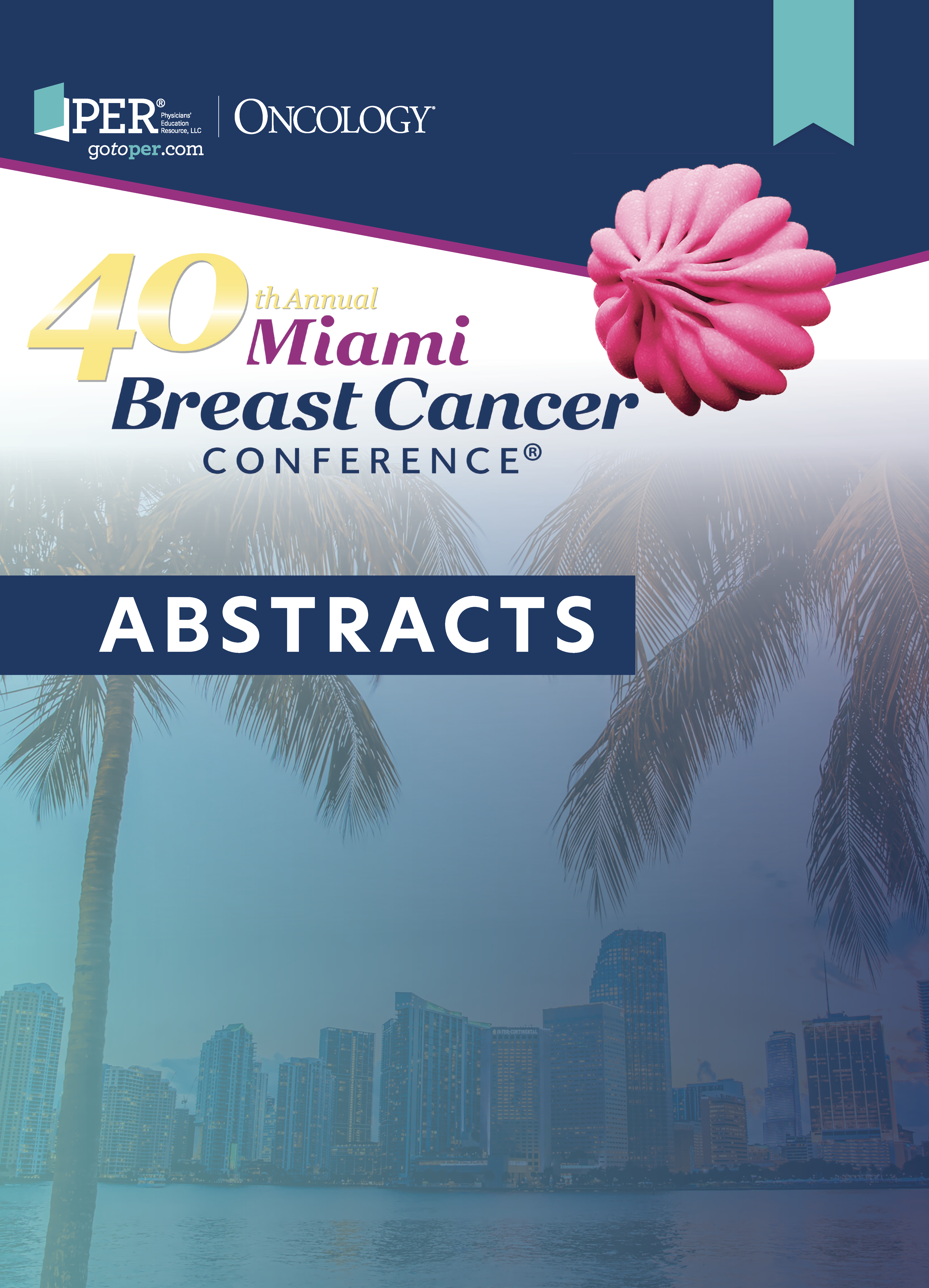26 Subgroup Analysis of Patients With No Prior Chemotherapy in EMERALD: A Phase 3 Trial Evaluating Elacestrant, an Oral Selective Estrogen Receptor Degrader (SERD), Vs Investigator’s Choice of Endocrine Monotherapy for ER+/HER2– Advanced/ Metastatic Breast Cancer (mBC)
Background
EMERALD demonstrated significantly prolonged progression-free survival (PFS) and a manageable toxicity profile for elacestrant vs standard-of-care (SOC) endocrine therapy in patients with ER+/HER2− mBC following progression on prior endocrine and CDK4/6 inhibitor therapy. A benefit was observed in the overall study population and in patients with ESR1 mutations (mESR1). Here, we report a subgroup analysis of EMERALD in patients with no prior chemotherapy.
Materials and Methods
EMERALD (NCT03778931) is a randomized, open-label, phase 3 trial that enrolled patients with ER+/ HER2− mBC who had 1–2 lines of endocrine therapy, mandatory pretreatment with a CDK4/6 inhibitor, and ≤1 chemotherapy. Patients were randomized 1:1 to elacestrant (400 mg orally daily) or SOC (investigator’s choice of fulvestrant or aromatase inhibitor). Primary end points were PFS in all patients and patients with mESR1. In this analysis, we compared PFS between elacestrant and SOC in patients without prior chemotherapy.
Results
Among the 477 patients enrolled in the trial, 77.8% (n = 371) had not received prior chemotherapy for mBC (median age = 64). Among patients without prior chemotherapy, treatment with elacestrant was associated with significantly prolonged PFS compared to SOC in both the overall population (hazard ratio [HR], 0.68; 95% CI, 0.52-0.89; P = .004; median PFS 3.7 vs 2.0; 6-mo PFS 38% vs 23%; 12-mo PFS 27% vs 12%), and patients with mESR1 (HR, 0.54; 95% CI, 0.36-0.80; P = .002; median PFS 5.3 vs 1.9; 6-mo PFS 44% vs 24%; 12-mo PFS 31% vs 12%). Key treatment-related adverse events (AEs) in the no prior chemotherapy elacestrant group were nausea (25.9%), fatigue (12.7%), and hot flush (11.1%). There were no treatment-related deaths in either group.
Conclusions
Among patients with ER+/HER2− mBC without prior chemotherapy, elacestrant significantly prolonged PFS compared to SOC endocrine therapy and showed favorable outcomes in this subgroup.
AFFILIATIONS:
Virginia Kaklamani,1 Aditya Bardia,2 Phillippe Aftimos,3 Javier Cortes,4 Patrick Neven,5 Alberto J. Montero,6 Joo Hyuk Sohn,7 Giulia Tonini,8 Krzysztof J. Grzegorzewski,9 François-Clément Bidard10
1University of Texas Health Sciences Center, Houston, TX.
2Massachusetts General Hospital Cancer Center, Harvard Medical School, Boston, MA.
3Institut Jules Bordet – Université Libre de Bruxelles, Brussels, Belgium.
4International Breast Cancer Center (IBCC), Quiron Group, Barcelona Spain.
5Universitaire Ziekenhuizen (UZ) – Leuven Cancer Institute, Leuven, Belgium.
6University Hospitals Seidman Cancer Center, Case Western Reserve University, Cleveland, OH.
7Yonsei Cancer Center, Yonsei University Health System – Medical Oncology, Seoul, Republic of Korea.
8Menarini Group, Florence, Italy.
9Stemline Therapeutics/Menarini Group, New York, NY.
10Institut Curie, Paris and Saint Cloud, France.
